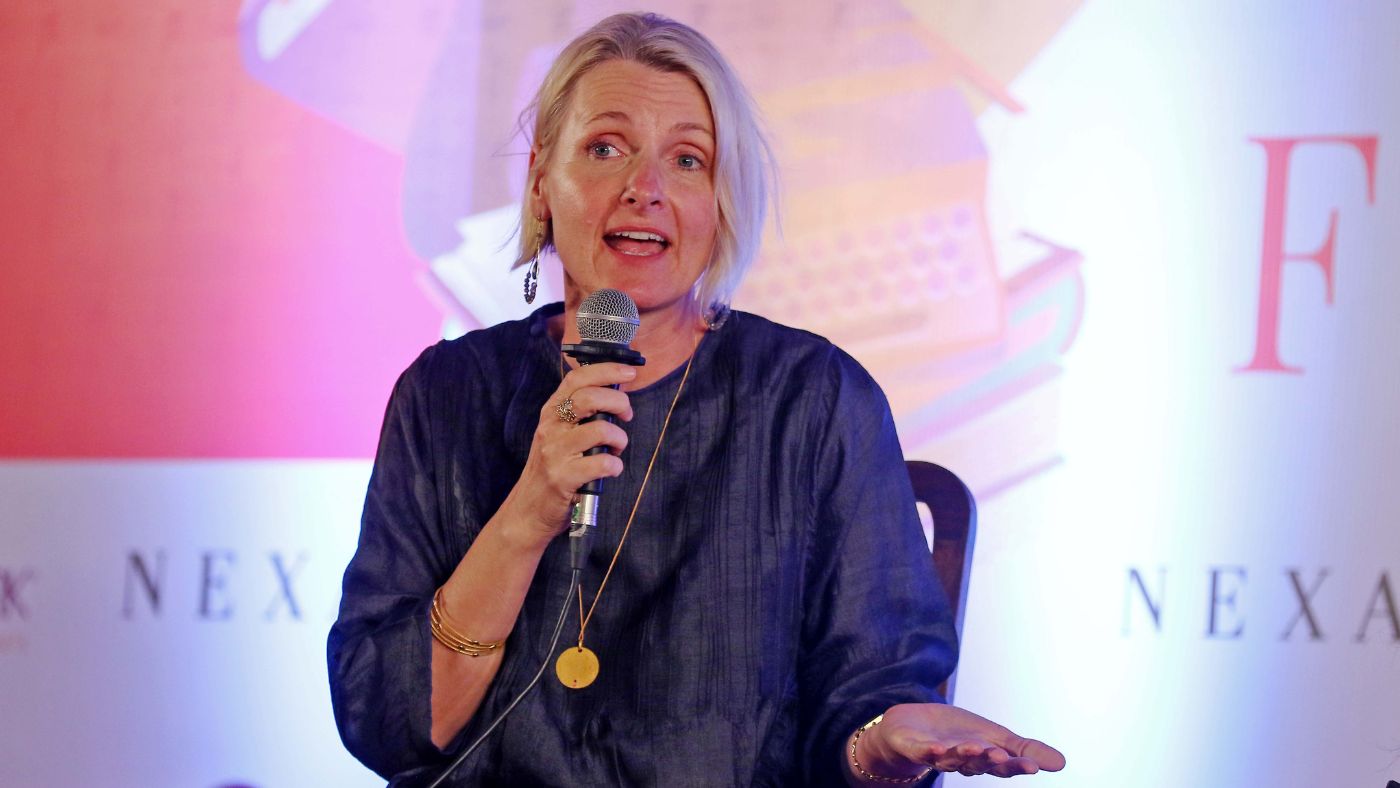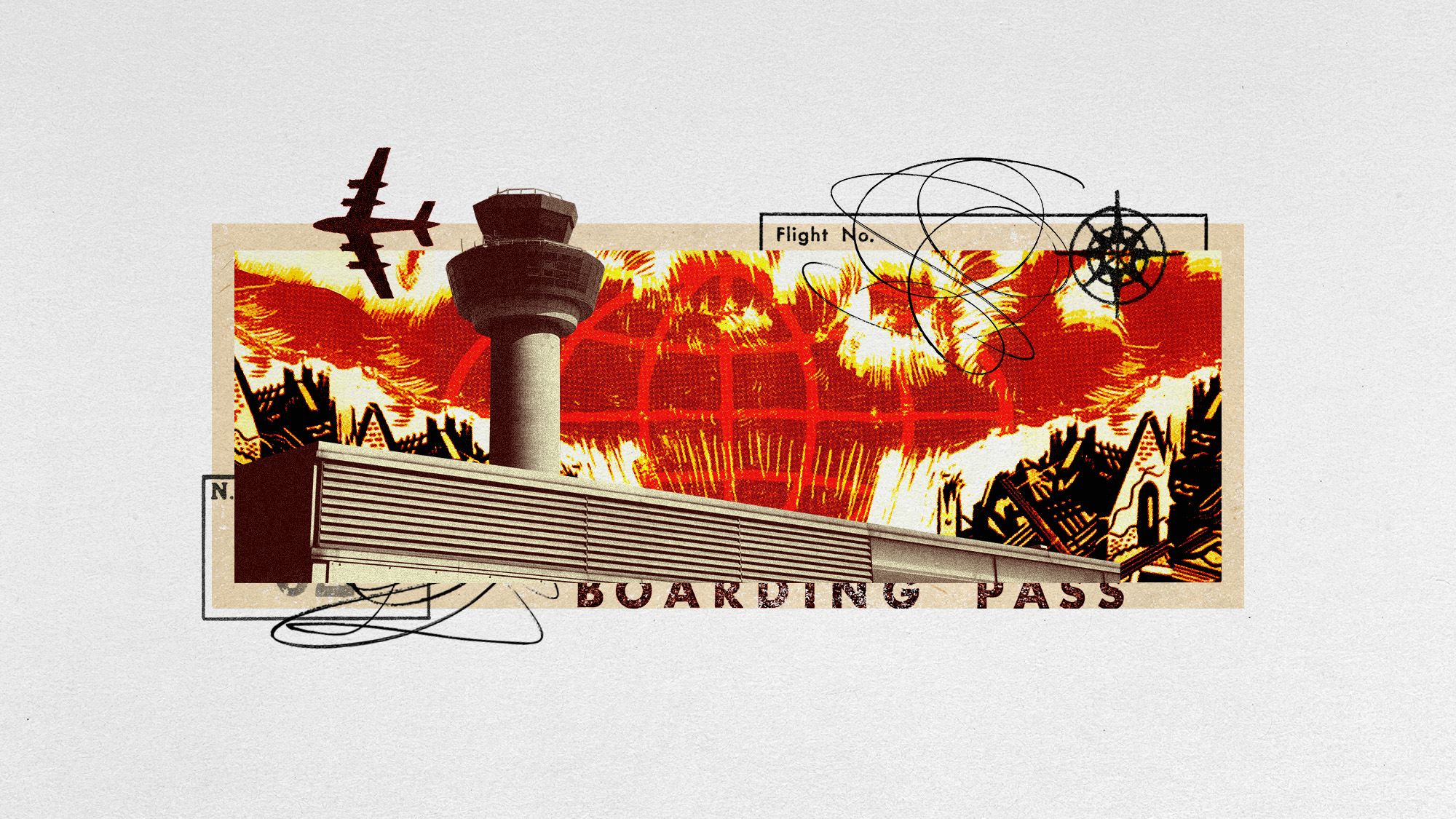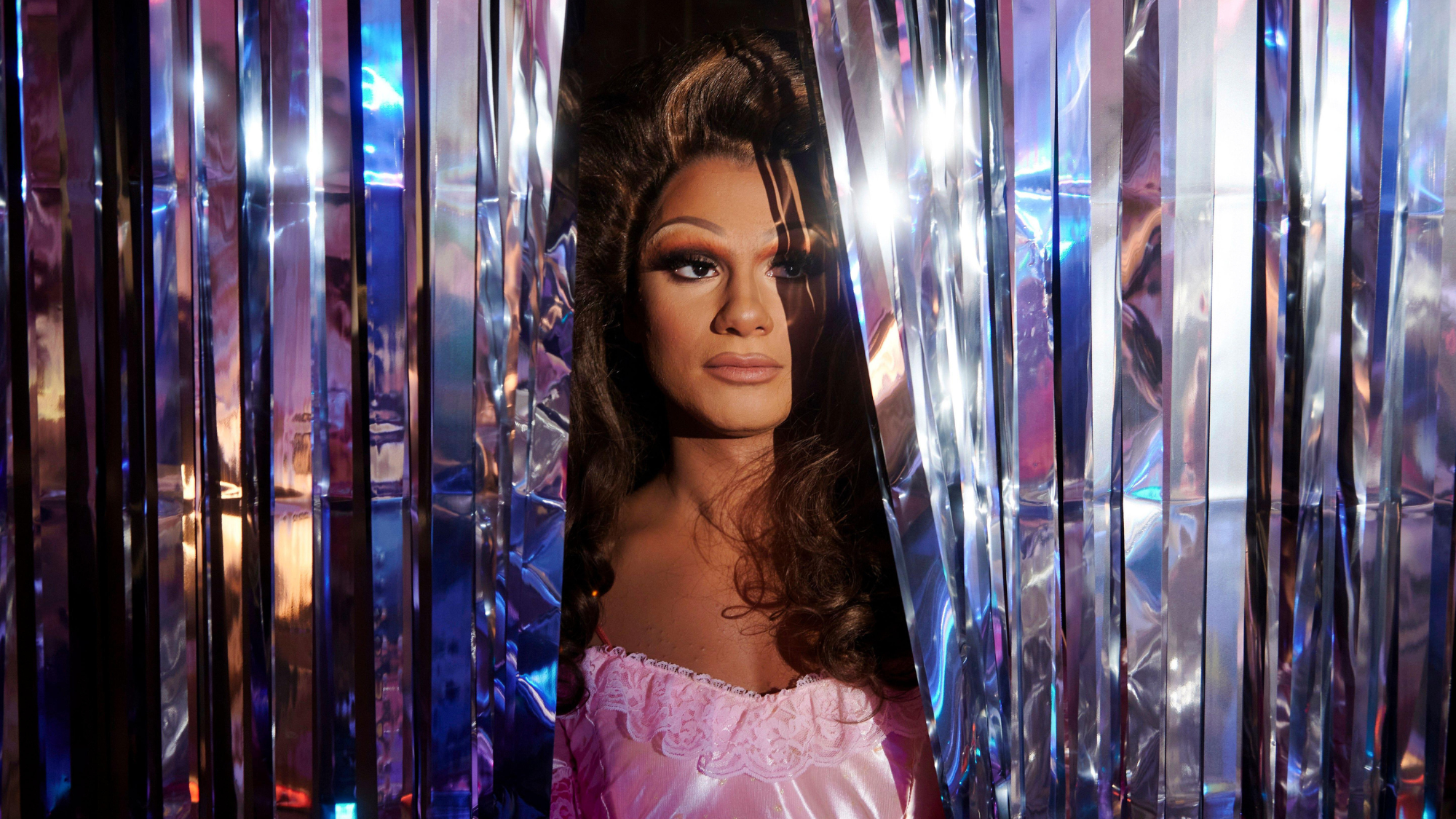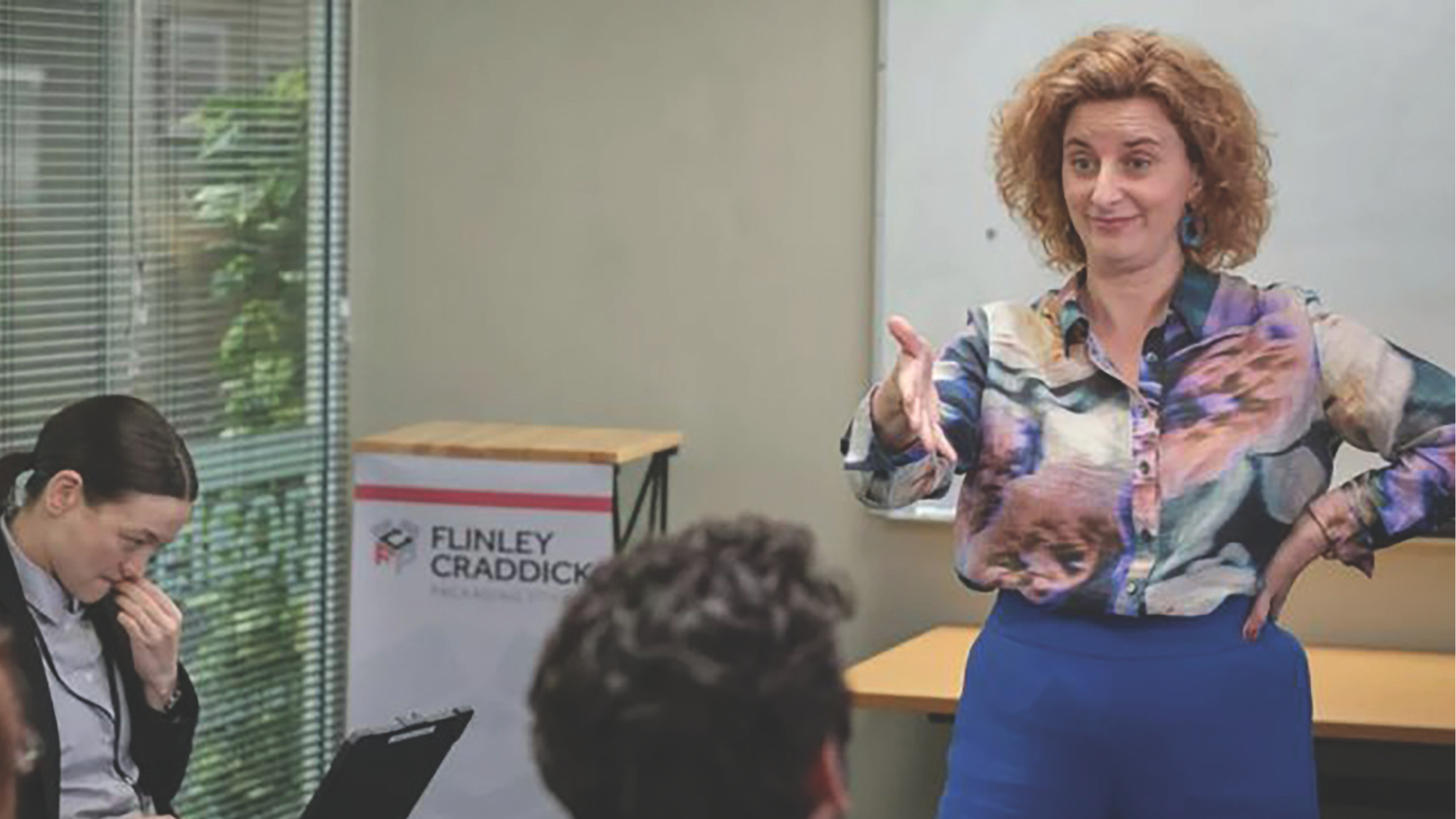Elizabeth Gilbert and the debate over cancelling Russian culture
Decision to delay publication of novel set in 20th-century Siberia sparks intense debate

A free daily email with the biggest news stories of the day – and the best features from TheWeek.com
You are now subscribed
Your newsletter sign-up was successful
Elizabeth Gilbert has withdrawn her forthcoming novel “The Snow Forest” from publication amid increasingly vociferous fallout over her decision to set the narrative in Russia while the war in Ukraine is ongoing.
Gilbert, known for the best-selling 2006 memoir “Eat, Pray, Love”, described “an enormous, massive outpouring of reactions and responses from my Ukrainian readers, expressing anger, sorrow, disappointment and pain” at her choice to write about 20th-century Russia.
Consequently, she asked her publishers at Penguin Random House to withdraw the new book, which had been due to be released in February next year. Gilbert called the move “a course correction”.
The Week
Escape your echo chamber. Get the facts behind the news, plus analysis from multiple perspectives.

Sign up for The Week's Free Newsletters
From our morning news briefing to a weekly Good News Newsletter, get the best of The Week delivered directly to your inbox.
From our morning news briefing to a weekly Good News Newsletter, get the best of The Week delivered directly to your inbox.
The furore has “re-ignited a wide-ranging debate over the place that Russian – or Russian-set – culture should have in the contemporary sphere of creative production”, The Guardian said.
PEN America, a non-profit organisation that aims to promote free expression around the world, said Gilbert’s decision was “well intended” but that withdrawing a book because of an ongoing military conflict was “wrong-headed”.
‘Flooded with one-star reviews’
Shortly after teasing the release of the book on her social media platforms, Gilbert said she began to hear criticism that her work was “glorifying” Russians and was similar to “writing a book about brave Germans in the 1940s”.
Yet the decision to withdraw the book may be a pragmatic rather than principled one. When “The Snow Forest” was added to Goodreads, an Amazon subsidiary that allows people to review books online, it was “flooded with one-star reviews from people who could not have read it yet”, said Imogen West-Knights on Slate.
A free daily email with the biggest news stories of the day – and the best features from TheWeek.com
“While Ukrainians are dying from russian terrorists, famous authors are writing books about them and romanticizing these bastards,” one commenter wrote.
“It’s time to forget about all imperialistic shit that Russia doing over the centuries,” said another. “Maybe, Elizabeth, you should’ve spent your pandemic time reading about all the Russian terror. Sad that after 15 months of invasion you still think that book about poor Russian family is a great choice.”
‘A dangerous precedent’
Not everyone took such a straightforward position. Writing on Twitter, the novelist and critic Lincoln Michel said: “This seems very weird to me. I mean the author’s decision but… no book should be set in historical Russia now? A novel about people resisting the USSR no less? Huh?”
The sentiment was echoed by UnHerd’s Leigh Stein, who said that Gilbert’s decision to withdraw the book set a “dangerous precedent” for all future writers.
“The idea that a novel about a family fleeing religious persecution from Communists is in any way ‘pro’ Russia is not only absurd – it’s also the exact same argument of potential ‘harm’ wielded by the crusading book banners in American schools,” Stein added. “If we can’t stomach novels set in countries that have dark and ugly stains on their records, I have bad news for anyone writing fiction about America.”
It is hard to “conjure a reason for why the delay of Gilbert’s book benefits anyone”, said Franklin Foer, writing in The Atlantic.
He added: “Gilbert had a chance to gently explain herself and defend her work, to argue for the importance of literature in a time of war, but she chose to abnegate her responsibilities as a writer and go another way: eat, pray, pander.”
“The publication of a novel set in Russia should not be cast as an act exacerbating oppression,” Suzanne Nossel, PEN America’s chief executive, said in a statement. “The choice of whether to read Gilbert’s book lies with readers themselves, and those who are troubled by it must be free to voice their views.”
Arion McNicoll is a freelance writer at The Week Digital and was previously the UK website’s editor. He has also held senior editorial roles at CNN, The Times and The Sunday Times. Along with his writing work, he co-hosts “Today in History with The Retrospectors”, Rethink Audio’s flagship daily podcast, and is a regular panellist (and occasional stand-in host) on “The Week Unwrapped”. He is also a judge for The Publisher Podcast Awards.
-
 Political cartoons for February 15
Political cartoons for February 15Cartoons Sunday's political cartoons include political ventriloquism, Europe in the middle, and more
-
 The broken water companies failing England and Wales
The broken water companies failing England and WalesExplainer With rising bills, deteriorating river health and a lack of investment, regulators face an uphill battle to stabilise the industry
-
 A thrilling foodie city in northern Japan
A thrilling foodie city in northern JapanThe Week Recommends The food scene here is ‘unspoilt’ and ‘fun’
-
 Disney bets big on AI, but not everyone sees a winner
Disney bets big on AI, but not everyone sees a winnerTalking Points The company will allow users to create their own AI content on Disney+
-
 Eurovision faces its Waterloo over Israel boycotts
Eurovision faces its Waterloo over Israel boycottsTalking Point Five major broadcasters have threatened to pull out of next year’s contest over Israel’s participation
-
 How global conflicts are reshaping flight paths
How global conflicts are reshaping flight pathsUnder the Radar Airlines are having to take longer and convoluted routes to avoid conflict zones
-
 Spotify Wrapped: a slave to the algorithm?
Spotify Wrapped: a slave to the algorithm?Talking Point Some listeners aren't convinced by the streaming platform's AI features – or what they say about their music habits
-
 Layla: Amrou Al-Kadhi's queer love story splits critics
Layla: Amrou Al-Kadhi's queer love story splits criticsTalking Point Bilal Hasna gives a 'winning performance' in starring role – but the romance feels 'bland'
-
 Dr. Strangelove: is stage adaptation of iconic film a 'foolish' move?
Dr. Strangelove: is stage adaptation of iconic film a 'foolish' move?Talking Point Steve Coogan puts on a dazzling performance in show that falls short of 'the real thing'
-
 Paddington in Peru disappoints critics
Paddington in Peru disappoints criticsTalking Point Keenly anticipated threequel sees the beloved bear swap London for South America
-
 Is The Office Australia a reboot too far?
Is The Office Australia a reboot too far?Talking Point The latest version of Ricky Gervais and Stephen Merchant's mockumentary feels like 'a bad case of déjà vu'